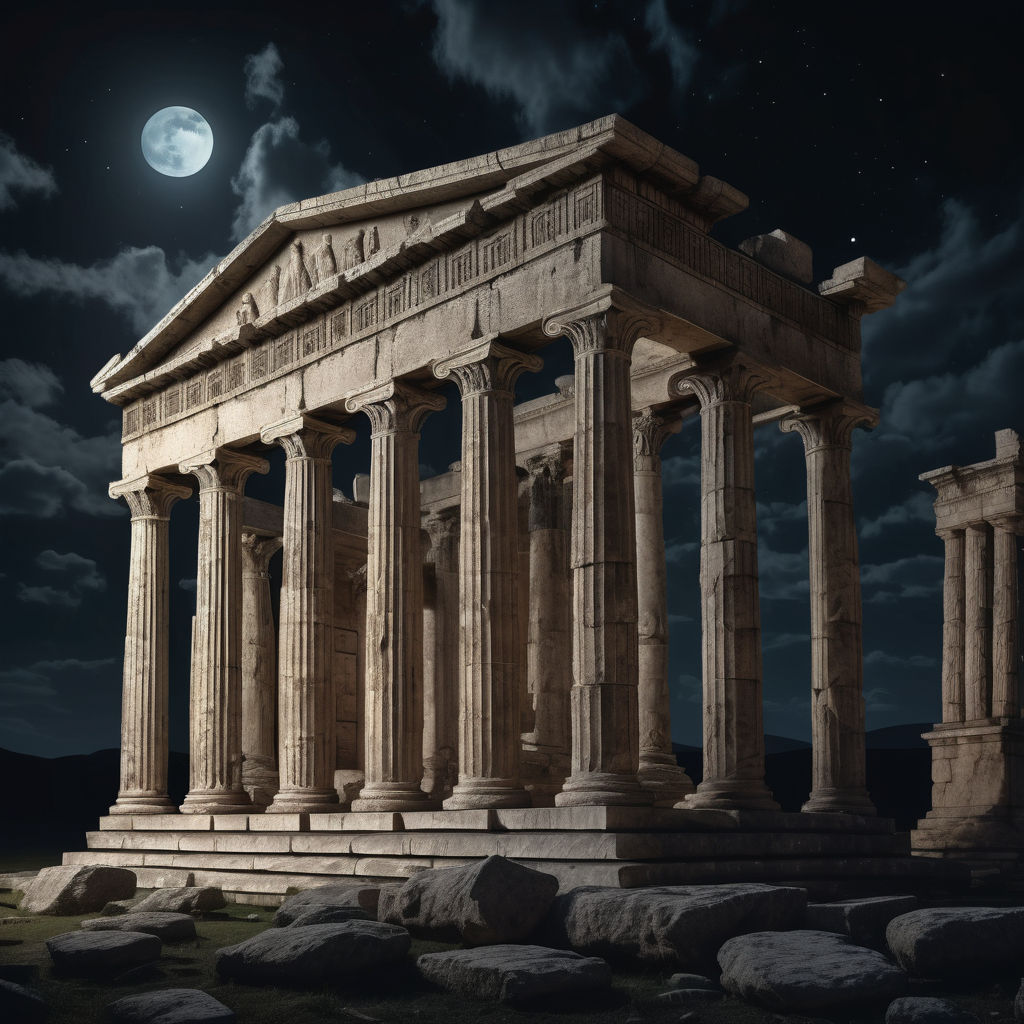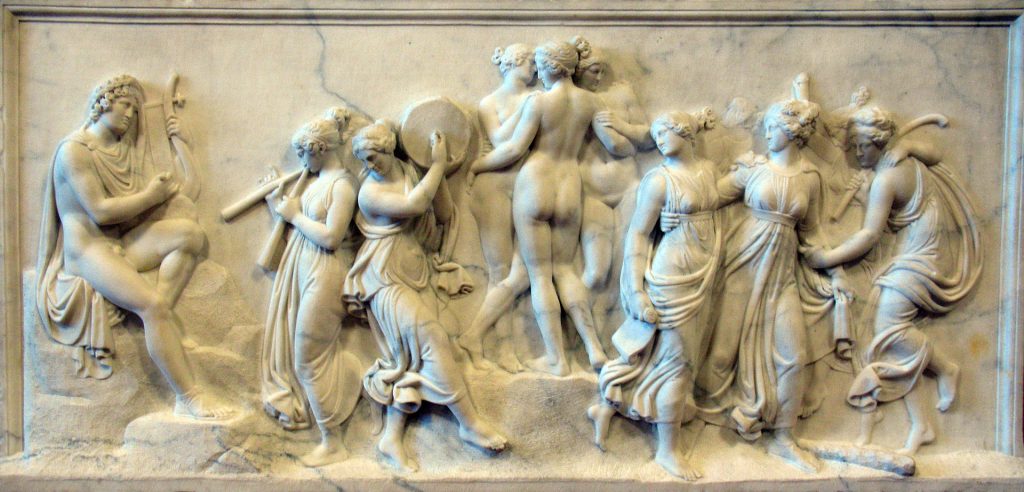Table of Contents
Roman mythology, a rich tapestry of ancient stories, gods, and legends, offers a fascinating glimpse into the cultural and religious practices of ancient Rome. As the Romans absorbed influences from Greek mythology and indigenous traditions, their own mythological narrative evolved into a unique pantheon of deities and heroic tales. This article explores the key elements of Roman mythology, including its major gods and goddesses, significant myths, and its impact on Roman society and culture.

1. The Pantheon of Roman Gods and Goddesses
At the heart of Roman mythology is a pantheon of gods and goddesses who governed various aspects of life and the natural world.
- Jupiter: The king of the Roman gods, Jupiter (or Zeus in Greek mythology), was the god of the sky, lightning, and thunder. He was revered as the protector of the state and the enforcer of justice. Temples dedicated to Jupiter were central to Roman religious practices, and his influence extended to all aspects of public and private life.
- Juno: Jupiter’s wife and the queen of the gods, Juno was the goddess of marriage and childbirth. She was also associated with the protection of the Roman state and was often depicted as a maternal figure. Her festivals, such as the Matronalia, celebrated her role as the guardian of women and family.
- Neptune: The god of the sea, Neptune (equivalent to Poseidon in Greek mythology), was worshiped by sailors and those dependent on the sea. He was often depicted with a trident and was believed to control the oceans and earthquakes.
- Mars: The god of war, Mars was one of the most important deities in Roman mythology. He was associated with military valor and was also considered a guardian of agriculture. His festivals, such as the Feriae Marti, were significant events in the Roman calendar.
- Venus: The goddess of love, beauty, and fertility, Venus (equivalent to Aphrodite in Greek mythology) was celebrated for her role in romance and procreation. She was also connected to the concept of divine beauty and the life-giving forces of nature.
2. Major Roman Myths and Legends
Roman mythology is rich with myths and legends that reflect the values and beliefs of ancient Roman society.
- The Founding of Rome: One of the most famous Roman myths is the story of Romulus and Remus, the legendary founders of Rome. According to the myth, the twin brothers were abandoned as infants and raised by a she-wolf. They eventually founded the city of Rome, but Romulus killed Remus in a dispute over the city’s boundaries, becoming its first king.
- The Aeneid: Written by the poet Virgil, the Aeneid is a foundational epic of Roman mythology. It tells the story of Aeneas, a Trojan hero who flees the burning city of Troy and embarks on a journey to Italy. His adventures, including battles and encounters with gods, lay the groundwork for the eventual founding of Rome. The epic serves as both a mythological history of Rome and a celebration of its imperial destiny.
- The Myth of Hercules: Hercules, a hero of Greek mythology, was also a prominent figure in Roman mythology. Known for his incredible strength and heroic deeds, Hercules was celebrated in Roman culture through various myths and legends. His Twelve Labors, a series of heroic tasks he undertook, were popular subjects in Roman art and literature.
- The Story of Aeneas and Dido: In the Aeneid, the love affair between Aeneas and Dido, the queen of Carthage, is a poignant tale of romance and tragedy. Aeneas’ departure from Dido to fulfill his destiny in Italy leads to her despair and eventual suicide, highlighting themes of duty versus personal desire.

3. Religious Practices and Rituals
Roman mythology was closely intertwined with religious practices and rituals that permeated daily life and state functions.
- Religious Festivals: The Romans celebrated numerous festivals dedicated to their gods and goddesses. These festivals often included sacrifices, feasts, and ceremonies to honor the deities and seek their favor. Notable festivals include the Saturnalia, a midwinter celebration in honor of Saturn, and the Lupercalia, a festival of fertility and purification.
- Augury and Divination: Augury, the practice of interpreting the will of the gods through the observation of birds, was a crucial aspect of Roman religion. Augurs, priests who specialized in this practice, played a significant role in state and military decisions. Similarly, haruspicy, the examination of animal entrails, was used to predict the future and ensure divine approval for actions.
- Temples and Shrines: Temples dedicated to the major gods and goddesses were central to Roman religious life. These structures were not only places of worship but also served as symbols of the city’s power and divine favor. Shrines and altars were found throughout the city and countryside, providing opportunities for daily worship and offerings.
4. The Legacy of Roman Mythology
The influence of Roman mythology extends beyond ancient Rome, impacting various aspects of Western culture and thought.
- Literature and Art: Roman mythology has been a rich source of inspiration for literature and art throughout history. The themes, characters, and stories from Roman myths have been reinterpreted in countless works of literature, painting, and sculpture.
- Language and Symbols: Many modern expressions and symbols have their origins in Roman mythology. For example, the names of the planets in our solar system are derived from Roman deities, and mythological references appear in everyday language and cultural references.
- Cultural Identity: Roman mythology played a significant role in shaping the cultural identity of Rome and its empire. The myths and legends helped forge a sense of unity and continuity, linking the present to a revered and storied past.

5. Conclusion
Roman mythology offers a captivating exploration of the beliefs, values, and cultural practices of ancient Rome. Through its pantheon of gods and goddesses, epic myths, and religious rituals, Roman mythology provides insight into the ways in which the Romans understood their world and their place within it. The legacy of these myths continues to resonate in modern culture, reflecting the enduring power of storytelling and the timeless appeal of ancient legends. As we study Roman mythology, we gain not only a deeper appreciation of Roman history but also a greater understanding of the universal themes that connect us across time and space.
